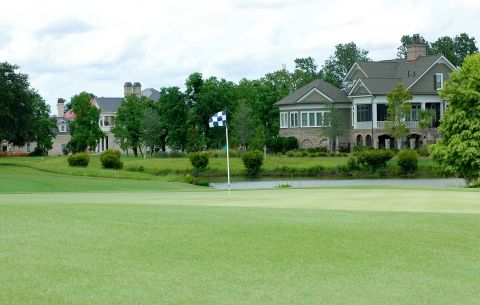When I published an article 16 months ago predicting increased British investment in American golf communities, the exchange rate for one pound of British sterling was $1.63 US. When I checked today, it was $1.62. With that kind of buying power and the over-supply of leisure residential properties in the southern U.S. driving prices lower than they were 1 ½ years ago, a modest Euro-invasion of American golf communities is not unlikely. In fact, according to the National Association of Realtors, the $82 billion foreigners spent on U.S. real estate in the year ended in March was one of the highest levels in recent years, up $16 billion from the prior year.
Some interesting data emerge from the NAR survey of its members concerning their foreign clients. Almost 80% said they would use their new home in the U.S. to entertain family and friends or as their primary home,

British citizens looking for an investment in a place like Daniel Island, SC, will be pleasantly surprised at the prices for golf homes, relative to those in the UK.
Let’s face it: The United Kingdom is a small country, and all of France is barely larger than Texas. They aren’t making any more land on which to put European golf courses, and if you think environmentalists are aggressive in the States, try building a new course in Europe. We may bemoan our own economy but it is still considered a safe haven by many investors around the world. Continuing worries about U.S. debt can only work against the value of the dollar, giving Europeans even greater leverage for large-scale purchases in the U.S. And considering the economic problems in Greece, Portugal and other bailed-out countries, Europeans seem to be more worried about rampant inflation than we in the U.S. are. As many economists tell us, real estate investment is one of the most effective hedges against inflation (especially when “safe” investments today are yielding barely 2% interest rates).
On an apples-to-apples basis, properties in Europe, especially in the UK, are more expensive than comparable properties here in the U.S.
Foreign dollars just could have a stimulating effect on one sector of the floundering U.S. housing market. If you are contemplating a purchase of a golf retirement or golf vacation home, keep an eye on this trend, as it might just push up prices in golf communities that look like a bargain today. If you would like some help in identifying the golf communities that best fit your criteria, please contact me.



